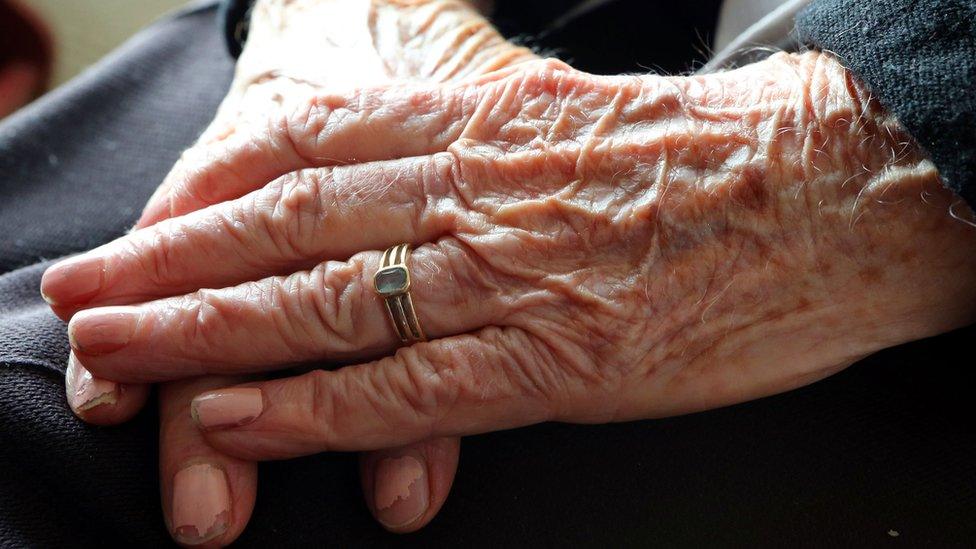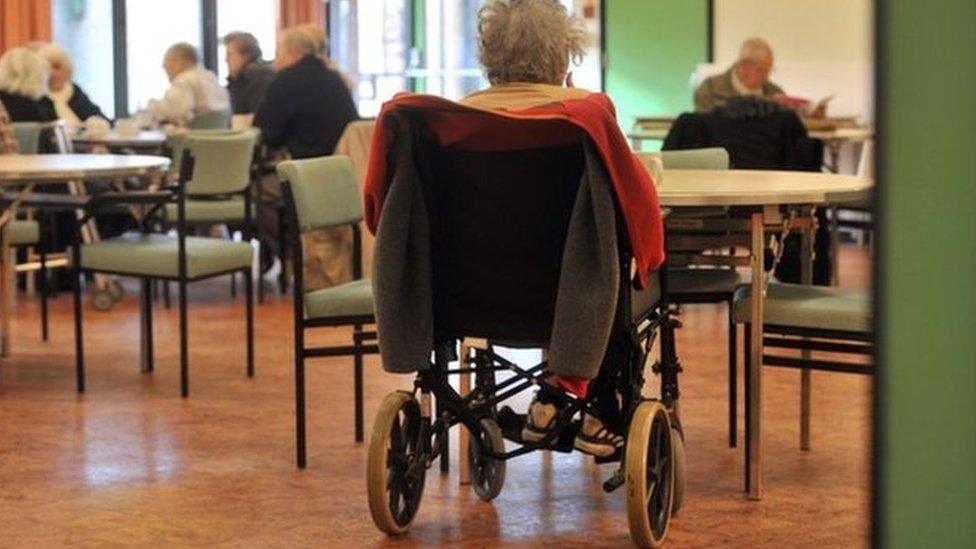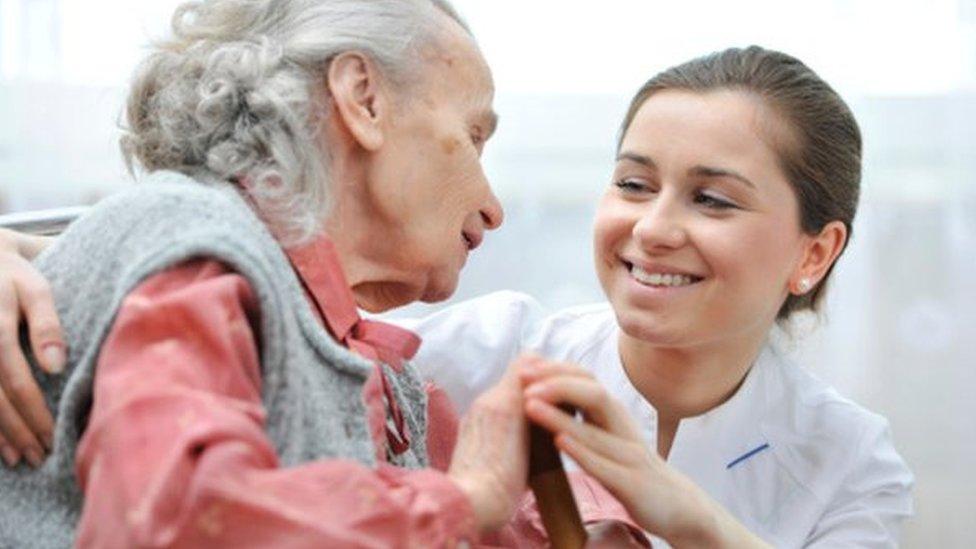Elderly 'reluctant to complain' over health care
- Published

The research involved a national survey of almost 700 over-65s
Elderly people are reluctant to make complaints about poor health care or do not know how to, the Parliamentary and Health Service Ombudsman says.
A report suggested 56% of people aged over 65 who experienced a problem did not complain because of worries about how it might impact future treatment.
Nearly 20% did not know how to raise a complaint, it said, while a third felt complaining would make no difference.
Ombudsman Julie Mellor said it could mean some are "suffering in silence".
That could "lead to missed opportunities to improve the service for others", she added.
The research involved a national survey of almost 700 people over the age of 65, as well as focus groups and case studies.
'Proactive approach'
One carer in Manchester told authors: "When people have a problem they don't know where to go; they are referred to a computer which they don't have; they are referred to a library which is too far away to get to... (and) they wouldn't know what to do anyway."
The report recommended a more proactive approach from NHS providers, saying they should make sure all users know how to complain and are reassured there will not be repercussions.
It said progress had been made, including through steps by the government to explore a new streamlined public ombudsman service to handle complaints.
But Age UK said the research was a cause for concern.
Charity director Caroline Abrahams said: "Seeking and responding to older people's views and experiences is crucial if we are to prevent future care scandals like those that have too often blighted our hospitals and care homes in recent years."
Healthwatch England said a universal, independent complaints advocacy service that was easy to find and simple to use would improve the situation.
A spokesman said: "We know the NHS is under pressure at this time of year, it is therefore vital that if things do go wrong patients are informed how to raise concerns and how to get help to do so if they need it.
"Without this support, thousands of incidents will continue to go under the radar every year and mistakes will never be learnt from."
- Published16 December 2015

- Published9 December 2015

- Published21 September 2015
